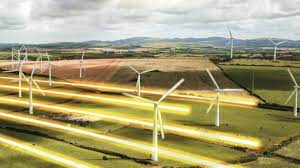Nearly £7m in government funding has been awarded to projects across the UK to support the development of new energy storage technologies.
The intermittent nature of renewables such as solar and wind power means that energy can be produced when it is not needed, such as during extended periods of high wind. However, as new technologies are developed, this energy can be stored for longer, helping manage electricity generation variations and increasing resilience, while also maximising value for money.
Twenty-four projects based across the UK have been awarded the first round of funding through the ‘Longer Duration Energy Storage competition’, which is worth £68m in total. These projects will benefit from a share of over £6.7m to develop new energy-storage technologies that can use stored energy as heat, electricity or as a low-carbon energy carrier like hydrogen.
Ranging from the development of thermal batteries to converting energy to hydrogen, the projects have been selected because of their potential to improve technology performance and reduce the cost of meeting net zero. Successful projects could benefit from a greater tranche of funding from a second phase of the competition, which will support these projects towards commercialisation, encouraging private investment and creating new jobs.
Greg Hands, energy and climate change minister, said: “Driving forward energy storage technologies will be vital in our transition towards cheap, clean and secure renewable energy.
“It will allow us to extract the full benefit from our home-grown renewable energy sources, drive down costs and end our reliance on volatile and expensive fossil fuels. Through this competition we are making sure the country’s most innovative scientists and thinkers have our backing to make this ambition a reality.”
The aim is to reduce the UK’s dependence on expensive fossil fuels, as well as providing cheaper energy to consumers. It could also mean that more of the UK’s energy is produced domestically. The green energy transition involves ensuring the UK’s electricity infrastructure can cope with greater shares of renewables, while meeting power demands securely.
The £6.7m funding has been awarded under Phase 1 of the ‘Longer Duration Energy Storage Demonstration’ competition, part of the government’s £1bn ‘Net Zero Innovation Portfolio’. Phase 2 will see the remainder of the £68m funding awarded to several of the most promising Phase 1 projects, to proceed to build and demonstrate their technology fully. Selecting projects for the next stage will take place upon the completion of Phase 1, whereby projects will be assessed based on their potential to commercialise their technologies.
Energy storage projects receiving Phase 1 funding include:
- Sunamp’s EXTEND project, East Lothian, Scotland – this will receive £149,893 for a feasibility study to further develop the storage duration of its thermal batteries. The project will look to pair its heat batteries with household energy systems to tackle periods of low renewables generation on the grid.
- Cheesecake Energy’s FlexiTanker project, Nottingham, England – this will receive £139,411 to develop its thermal and compressed-air energy storage technology to integrate more renewables into the grid, helping to fast-track the decarbonisation of the UK electricity system.
- B9 Energy Storage’s Ballylumford Power-to-X project, Larne, Northern Ireland – this will receive £986,082 to mobilise an innovative 20 MW Power-to-X project at Ballylumford. Green hydrogen produced by electrolysers will be stored in underground salt caverns and used for transport and to displace natural gas in fuel-blending trials. This project paves the way for future large-scale deployments connected to offshore wind farms.
Andrew Bissell, chief executive officer, Sunamp, said: “For the past decade, we have focused on decarbonising hot water and have delivered a world-beating 20,000 heat batteries using our phase change material into the market so far and we are now bringing forward our Central Bank products for heat. Our thermal storage technology can be combined with heat pumps to deliver more than twice as much heat per unit of electricity on demand than direct electric heating.
“This funding will accelerate how we can further enhance thermal storage duration, working with wind energy from the grid and solar PV in homes, to provide heat and water during extended intervals of low renewables generation when green power is not available on the grid, eventually reducing the overall cost of operation to be lower than gas.”
A full list of the projects receiving funding under Phase 1 is available online.

